512: Why Do The British Like Property?
07-03-2014

Propertyinvesting.net team
Psych: To understand the property market, one has to understand the British psych – since so much of markets is driven by human behaviours – demand and the forces of supply. The bulk of British citizen’s net worth is tied up in property. Indeed, it has been very difficult to make serious money from any other asset class except for property. Just ask yourself a few questions:
· What proportion of your net worth is tied up in property – versus other asset classes?
· Do you know any millionaires – how many have made their millions from anything else but property?
· If someone said to you – "you have to make £1 million in the next five years" – can you think of anything else apart from property you would risk your cash on, and be able make such a large return?
"you have to make £1 million in the next five years" – can you think of anything else apart from property you would risk your cash on, and be able make such a large return?
Easy Asset Class: It's very difficult indeed to make a million out of stocks and shares, gold-silver, art or any other investment for the vast majority of people – for all but the most wealthy 5%, the only realistic low risk way of making a million pounds in through property.
So why is this?
GDP Follows Property: The UK economy is very reliant on the property market expanding. Indeed, when the property prices rise, the economy grows strongly and vice versa – they normally go in tandem partly because lowering unemployment boosts house prices and house prices boost employment. There are no examples of house prices shooting up when the economy is doing badly.
Leverage: The number one reason why it is easier to make a million from property compared to other assets is because of "leverage". If you put 10% cash into an investment, and borrow 90% - you are massively leveraging. This means that a small property price rise has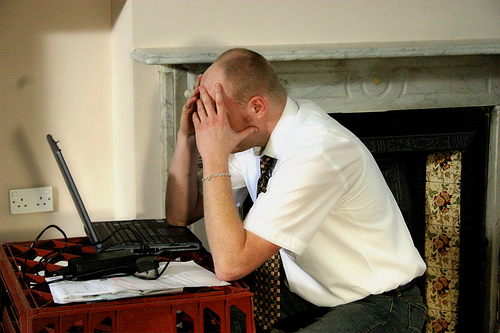 a giant impact on your return on investment. So if you buy a property for £200,000 – put a 10% deposit down – with £20,000 – then the property prices rise by 10%, your return on investment (or capital employed) is 100% - you double your money on paper at least. This can quite easily happen in a year – you put in £20,000 and then your net worth grows to £40,000 after only a 10% rise in property prices in a year. That’s a massive and fast return. Of course it can work in reverse, if the property prices decline 10% - you wipe out your net worth of £20,000. This is of course a key risk. You don’t hear much these days about “leverage” – it’s almost as if it’s a dirty swear word. Some nasty thing that people did in 2007 before the crash. The simple fact is – without leverage – by taking on debt – it’s almost impossible to make a million. You would have to build and own your own business with minimal debt – funded through expanding income.
a giant impact on your return on investment. So if you buy a property for £200,000 – put a 10% deposit down – with £20,000 – then the property prices rise by 10%, your return on investment (or capital employed) is 100% - you double your money on paper at least. This can quite easily happen in a year – you put in £20,000 and then your net worth grows to £40,000 after only a 10% rise in property prices in a year. That’s a massive and fast return. Of course it can work in reverse, if the property prices decline 10% - you wipe out your net worth of £20,000. This is of course a key risk. You don’t hear much these days about “leverage” – it’s almost as if it’s a dirty swear word. Some nasty thing that people did in 2007 before the crash. The simple fact is – without leverage – by taking on debt – it’s almost impossible to make a million. You would have to build and own your own business with minimal debt – funded through expanding income.
Control: The other key point about property is that you have "control" – you can do things with your asset – you can improve it, renovate-repair-upgrade-decorate, extend, improve and add value. You have access to it. You own it. You can touch it, it is tangible. If you buy a flat for £200,000 that needs refurbishment – you spend £20,000 then sell for £240,000 shortly after, you will make £20,000 minus stamp duty-costs-fees - that close to a 100% return on investment. If during this period the house prices rise 10%, you might spend £20,000 and make a £40,000 straight profit - a 200% return. If you try and do this in stocks and shares, you would need £500,000 in cash – then if equities rose 8% - you would make about £40,000. You cannot leverage with stocks and shares – you cannot borrow from a bank to purchase stocks and shares normally - they would laugh at you. Hence for the young or mi ddle income citizens with say £20,000 in cash, the only way to make serious money is normally to buy property.
ddle income citizens with say £20,000 in cash, the only way to make serious money is normally to buy property.
Legal Title: One of the little known super things about UK properties is the legal title. Foreigners know this. That’s why they like London property. It’s almost impossible for the UK government to seize someone’s property – almost unheard of in the UK. Of course one hears many horror stories of people buying properties in Spain, Portugal and Greece, only to find they don’t own the land, or the council or regional government confiscates the property. Owners lose everything. The British legal system prevents this. Once you have your freehold title deeds – that’s it – you can generally rest easy – as long as you pay your mortgage. For rich cash buyers – you don’t even need to worry about the bank. As they say – “safe as houses”, or “an Englishman’s home is his castle” or “putting money into bricks and mortar”.
Political Will: It really isn’t in the interests of any political party to trigger a house price crash – it's not a vote winner. Furthermore, almost 100% of politicians have purchased properties and indeed the bulk of their net worth is in property – so they individually, privately and personally are not looking to crash property prices. You’ll be hard pushed to find a politician who only rents and does not own a property.
Bank of England: The Bank of England also see stable but rising property as a sign of a prosperous growing economy – so they are not in the business of creating conditions that would crash the property market. Indeed, the BoE Governor Mark Carney is quite famous for presiding over the Canadian post 2008 boom economy when ho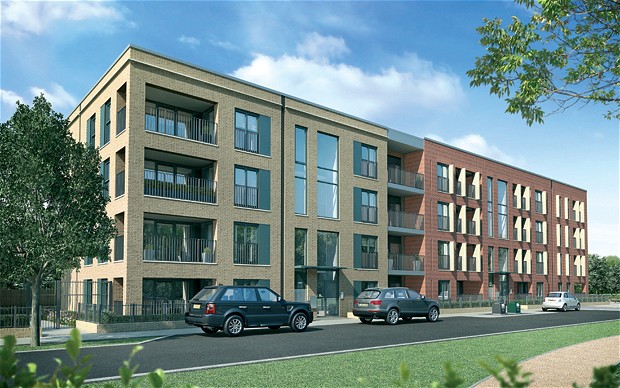 usehold debt tripled in 5 years and property prices doubled. He created boom conditions in the Canadian property market that continues to expand today – and we believe he was - at least in part - drafted in to the UK early 2013 to help create boom conditions to boost the UK economy after 4 years when mild austerity and a hidden depression and severe manufacturing decline left the Tory Coalition with one last roll of the dice – "Help to Buy" and Mark Carney to the rescue to create a healthy new property market. It certainly seems to have worked for them, albeit 35% of the population is probably not appreciative as they own no property and have to pay higher rents as housing shortages become more severe. If you also consider the private and state owned banks – it really is not in their interests to see crashing property values since their bad debts skyrocket - these banks would then fail again. The Bank of England will always step in and start printing currency to bail the banks out as they did in 2008 – rather than create a prolonged depression. Overall we believe there will always be overall inflation in a ten year timescale in western countries because the alternative deflation is just not acceptable to banks or the political classes. Investment therefore need to capture value around this trend, and property is just about the best option in a high inflationary world.
usehold debt tripled in 5 years and property prices doubled. He created boom conditions in the Canadian property market that continues to expand today – and we believe he was - at least in part - drafted in to the UK early 2013 to help create boom conditions to boost the UK economy after 4 years when mild austerity and a hidden depression and severe manufacturing decline left the Tory Coalition with one last roll of the dice – "Help to Buy" and Mark Carney to the rescue to create a healthy new property market. It certainly seems to have worked for them, albeit 35% of the population is probably not appreciative as they own no property and have to pay higher rents as housing shortages become more severe. If you also consider the private and state owned banks – it really is not in their interests to see crashing property values since their bad debts skyrocket - these banks would then fail again. The Bank of England will always step in and start printing currency to bail the banks out as they did in 2008 – rather than create a prolonged depression. Overall we believe there will always be overall inflation in a ten year timescale in western countries because the alternative deflation is just not acceptable to banks or the political classes. Investment therefore need to capture value around this trend, and property is just about the best option in a high inflationary world.
The British Know About Supply and Demand: The bulk of the UK population also realises that decades of underinvestment in building caused by planning constraints and Nimbyism has created conditions where it is difficult to see property prices not rising as long as the economy is d oing well. The UK population is booming from massive net migration triggered by Labour policies starting 1997 onwards that the Tory Coalition have not been able to reverse thus far. Furthermore, the new hard working migrants have tended to have large families – a higher fertility rate – and this is feeding through in areas where migration has been the highest – for instance London and East Anglia. This trend is set to continue and will put further severe pressure on housing in southern counties and London in the next 10-20 years. People know and understand these trends – they are not stupid – and this is a key reason why everyone’s been jumping into the market, including hard working migrants. They cannot see supply of low cost properties on the horizon, they see a booming population, booming economy and are desperate to get in before it’s too late – before prices get out of reach. Who can blame them. They are probably wise. Talking of a housing crisis is now in all the newspapers so it’s difficult to for people to avoid – the basic understanding that supply simply is not meeting demand is understood. Each year, London’s population rises by 110,000 people – needing 55,000 new homes. However, only 15,000 new homes are being built – and 90% of these are flats with prices in excess of £500,000. No affordable houses are being built. When was the last time you heard of a London family buying an affordable 3 bedroomed house for £200,000 – it just does not happen anymore. We were warning about the housing crisis 9 years ago - if you look back in our Special Reports from 2005. This is nothing new - its juts getting more severe as the population explodes - as we also predicted.
oing well. The UK population is booming from massive net migration triggered by Labour policies starting 1997 onwards that the Tory Coalition have not been able to reverse thus far. Furthermore, the new hard working migrants have tended to have large families – a higher fertility rate – and this is feeding through in areas where migration has been the highest – for instance London and East Anglia. This trend is set to continue and will put further severe pressure on housing in southern counties and London in the next 10-20 years. People know and understand these trends – they are not stupid – and this is a key reason why everyone’s been jumping into the market, including hard working migrants. They cannot see supply of low cost properties on the horizon, they see a booming population, booming economy and are desperate to get in before it’s too late – before prices get out of reach. Who can blame them. They are probably wise. Talking of a housing crisis is now in all the newspapers so it’s difficult to for people to avoid – the basic understanding that supply simply is not meeting demand is understood. Each year, London’s population rises by 110,000 people – needing 55,000 new homes. However, only 15,000 new homes are being built – and 90% of these are flats with prices in excess of £500,000. No affordable houses are being built. When was the last time you heard of a London family buying an affordable 3 bedroomed house for £200,000 – it just does not happen anymore. We were warning about the housing crisis 9 years ago - if you look back in our Special Reports from 2005. This is nothing new - its juts getting more severe as the population explodes - as we also predicted.
Inflation and Interest Rates: Because the economy is only just coming out its “fragile” phase – it’s not likely interest rates will go shooting up. One of the massive benefits of the Tory Treasury reputation in capital markets is that there have been massive inflows of money into Sterling that have strengthened the currency. This has reduced borrowing costs for mortgage holders. Furthermore – t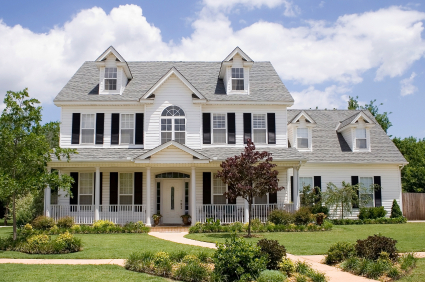 his has kept a big lid on real CPI/RPI inflation since imports cost become lower. Because wage inflation remains low – helped by many migrant workers that have flooded in to help support the economy – then this has kept down manufacturing costs and despite the strengthening Sterling, UK manufacturing and exports have been quite strong in the last year. All this is supported by the back-drop of good financial management by the Tory government – their policies finally working through – after the absolutely disasterous situation the Labour party left the UK in, in 2010. The UK almost went bankrupt – it was touch and go for a while – and it’s taken 3-4 years to repair just half the damage done from deficit spending and financial mis-management in the period 1997-2010. Yes – this is the reason why property prices are rising, employment is rising, unemployment is dropping, GDP growth is rising, Sterling is strong and borrowing costs and inflation remain low with the tax burden dropping and disposable income starting to rise at long last. Okay, we cannot reverse Gordon Brown's decision to sell 70% of the UK's gold reserves in 2002-2003 at a historic inflation adjusted low of $280/ounce (prices are now $1320/ounce) - but despite declining oil revenues - there is a degree of financial stability that Labour were not able to achieve after their 13 year spending binge and public sector expansion programme.
his has kept a big lid on real CPI/RPI inflation since imports cost become lower. Because wage inflation remains low – helped by many migrant workers that have flooded in to help support the economy – then this has kept down manufacturing costs and despite the strengthening Sterling, UK manufacturing and exports have been quite strong in the last year. All this is supported by the back-drop of good financial management by the Tory government – their policies finally working through – after the absolutely disasterous situation the Labour party left the UK in, in 2010. The UK almost went bankrupt – it was touch and go for a while – and it’s taken 3-4 years to repair just half the damage done from deficit spending and financial mis-management in the period 1997-2010. Yes – this is the reason why property prices are rising, employment is rising, unemployment is dropping, GDP growth is rising, Sterling is strong and borrowing costs and inflation remain low with the tax burden dropping and disposable income starting to rise at long last. Okay, we cannot reverse Gordon Brown's decision to sell 70% of the UK's gold reserves in 2002-2003 at a historic inflation adjusted low of $280/ounce (prices are now $1320/ounce) - but despite declining oil revenues - there is a degree of financial stability that Labour were not able to achieve after their 13 year spending binge and public sector expansion programme.
Socialist Threat: Of course, if Labour win power in May 2015 – all this good work will definitely reverse in our view. Labour have been shown in 20014 to be anti-business - they would raise taxes, increase the public sector again, and destroy the good work that has been done in the last 3-4 years – just like Hollande has done in France. Please note – France is the only NW European economy in recession – caused undoubtedly by their socialist high tax policies that have hit business and reduced tax returns and employment. A similar thing would happen if Labour win the next election – though it’s likely to be even worse since the UK economy is less productive and more fragile than France’s. Anyone that thinks Ed Miliband and Ed Balls are pro-business have got to be borderline delusional – their policies are of intervention, price controls, regulation, big government, high tax, export of wealth from London and private individuals and businesses into public sector projects outside London. If they get into power, they are sure in our view to mismanage the economy again leading to an economic collapse – we cannot underestimate this risk – objectively it’s is the biggest risk and biggest threat that a property investor has facing them at this time. Of course, as the economy imploded - property prices would crash.
 Status: The other consideration with property is status. This might think this sounds a bit old fashioned. You might also think people don’t care much about this - but they do. It’s not just a British thing either – it’s the same the world over (the only exception could be Germany). Most people want to own their own property rather than rent – it’s partly a status thing. If you rent – it looks like you cannot afford to buy. Short term tenancy agreements (except in Germany) mean a Landlord can give one month’s notice for you to leave once a contract is up. Anyone with a family and wanting stability and control in their life would not want this hanging over their heads. Yes, renters have more flexibility – but most people want to stay in a town-city-area for years – especially when their kids go to school. They don’t like moving around. The want control. They want to invest in their homes.
Status: The other consideration with property is status. This might think this sounds a bit old fashioned. You might also think people don’t care much about this - but they do. It’s not just a British thing either – it’s the same the world over (the only exception could be Germany). Most people want to own their own property rather than rent – it’s partly a status thing. If you rent – it looks like you cannot afford to buy. Short term tenancy agreements (except in Germany) mean a Landlord can give one month’s notice for you to leave once a contract is up. Anyone with a family and wanting stability and control in their life would not want this hanging over their heads. Yes, renters have more flexibility – but most people want to stay in a town-city-area for years – especially when their kids go to school. They don’t like moving around. The want control. They want to invest in their homes.
Tax and Stamp Duty: This brings us onto stamp duty. This unfair tax has done more than many things to create conditions where there are very few properties on the market – turnover is low - exacerbating the housing shortage. In 1965, the average home owner moved every 6 years. In 2005 they move every 18 years. Now they move every 22 years – that’s almost ¼ of a century! No-one wants to pay stamp duty – especially on expensive houses – so they just hang on to them. They extend them. They dig basements. They dig double and triple basements in Kensington. They only sell when they can see a clear large profit. This conversely lowers the overall government tax take because of the low activity levels and helps raise prices. Everyone’s hanging onto their properties. If they have a flat, when trading up they will try and use the equity in this property to then buy a house and let the flat out. The wealthy property owners will of course over time get far more wealthy, and the people that cannot get onto the property ladder will never realise any significant net worth – because as we mentioned – it’s almost impossible to make serious money from anything else but property.
Young People Listen: This is why if you are 25 years old – manage to access £25,000 in cash – you can use your own hard labour-effort and buy a flat – renovate and make serious money in short period of time at this time. But if you use the £25,000 anywhere else – you are more likely to lose it to financial advisers, fees, bad investments and the stock market - rather than increase your net worth. Ask yourself this question. How much net worth have your parents got? What proportion of this was made and is held in property?
Property Inflation Trend: In 1970 an average flat in London cost £13000. Today it costs £300,000. That's a 23 fold increase, 2300% increase. In 44 years time – do you think a London flat will cost £300,000? If it rises on the same trajectory as the last 44 years – it will be worth £7 million. Yes, that’s also a 23 fold increase. With the amount of currency printing the Bank of England and the US Fed have done in the last five years – tripling money supply – we reall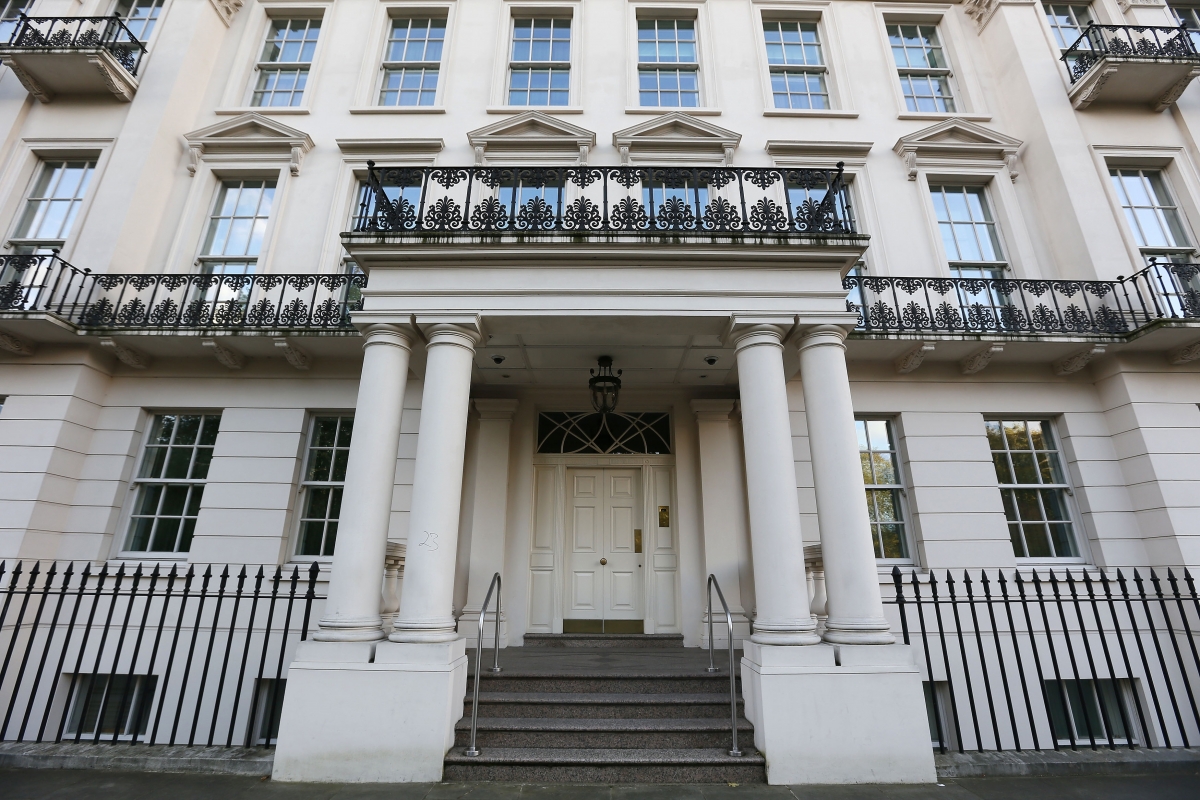 y would not be surprized to see a £300,000 flat worth £7 million in 2058. If property prices rose just 4% a year – the flat would be worth £1.7 million in 2058 – an 8% annual rise would put the price at a staggering £8.9 million. Now all those 25 years olds with £25,000 cash – just thing when you are 69 years old – that same old flat would likely be worth somewhere between £1.7 million and £8.8 million. Considering the projected lack of property supply and massively booming population in London, any flat close to West London for £300,000 would surely be a winner in the long term for a young person. Anyway, this is just to get you thinking about the opportunity and the risk. As more currency is printed – our view is that more global currency will end up in hard assets in London property, something tangible, with utility-use, rental value and able to be used as collateral. As we know, land is getting scarcer as populations rise. Building land is getting scarcer as prohibitive regulations, environmental constraints and populations all increase. This should support London property prices and those in the more prosperous parts of the UK, in better off urban areas and market towns close to good jobs.
y would not be surprized to see a £300,000 flat worth £7 million in 2058. If property prices rose just 4% a year – the flat would be worth £1.7 million in 2058 – an 8% annual rise would put the price at a staggering £8.9 million. Now all those 25 years olds with £25,000 cash – just thing when you are 69 years old – that same old flat would likely be worth somewhere between £1.7 million and £8.8 million. Considering the projected lack of property supply and massively booming population in London, any flat close to West London for £300,000 would surely be a winner in the long term for a young person. Anyway, this is just to get you thinking about the opportunity and the risk. As more currency is printed – our view is that more global currency will end up in hard assets in London property, something tangible, with utility-use, rental value and able to be used as collateral. As we know, land is getting scarcer as populations rise. Building land is getting scarcer as prohibitive regulations, environmental constraints and populations all increase. This should support London property prices and those in the more prosperous parts of the UK, in better off urban areas and market towns close to good jobs.
Safe Haven Property: As we also know, as more global countries descend into chaos and war – the super-rich elite will want a London pad or house as a hedge against bad times. They just don’t build London houses anymore – so millions will want a London house but only 1000s will be supplied - on Central London only 150,000 exist. London house prices are likely to conti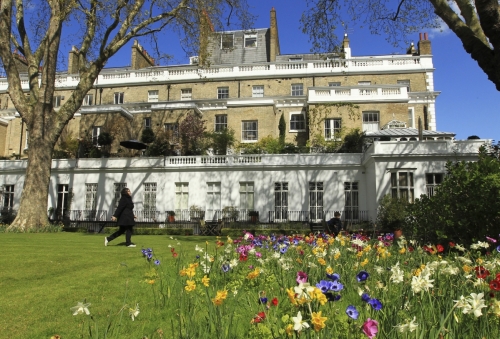 nue to shoot up as long as the Tories remain in power e.g. are managing the economy fairly efficiently. London is a huge draw for top global talent – and these highly motivate well educated people want to set up in London because of the opportunity, quality of life (leisure, culture, weather, transport, education, low crime rates, history, openness). This will drive property prices up in places like Hackney, Shoreditch, Whitechapel – close to Tech City and Kings Cross, Kennington, Borough, Bayswater, Clapham – close to the West End and City. These people are super-educated city dwellers that want to live in central London, not the suburbs. So expect French, Chinese, Brazilian, Russian and Middle Eastern people buying in central London close to the shops-theatres, amenities and night life. They won’t be so interested in the rural English idyll. Because of this foreign wealth effect, its likely West London property prices will continue to grow at a faster pace than rural property prices over the next decades. The super-rich will always want the historic houses in central-west London. Scottish Castles are for UK citizens, who are generally less wealthy than the global elite super-rich cadre who have access to the zero cost currency that the central banks have printed – that drive central London property prices skywards. For all those 25 years olds that want to be wealthy when they are 70 - our view is the best way to achieve this is by stretching to buy a nice one bedroom flat as close to central London as possible then renovating it at fairly low cost using your own efforts.
nue to shoot up as long as the Tories remain in power e.g. are managing the economy fairly efficiently. London is a huge draw for top global talent – and these highly motivate well educated people want to set up in London because of the opportunity, quality of life (leisure, culture, weather, transport, education, low crime rates, history, openness). This will drive property prices up in places like Hackney, Shoreditch, Whitechapel – close to Tech City and Kings Cross, Kennington, Borough, Bayswater, Clapham – close to the West End and City. These people are super-educated city dwellers that want to live in central London, not the suburbs. So expect French, Chinese, Brazilian, Russian and Middle Eastern people buying in central London close to the shops-theatres, amenities and night life. They won’t be so interested in the rural English idyll. Because of this foreign wealth effect, its likely West London property prices will continue to grow at a faster pace than rural property prices over the next decades. The super-rich will always want the historic houses in central-west London. Scottish Castles are for UK citizens, who are generally less wealthy than the global elite super-rich cadre who have access to the zero cost currency that the central banks have printed – that drive central London property prices skywards. For all those 25 years olds that want to be wealthy when they are 70 - our view is the best way to achieve this is by stretching to buy a nice one bedroom flat as close to central London as possible then renovating it at fairly low cost using your own efforts.
We hope this Special Report has given you some interesting insights into why most people aspire to buy property, why this is not likely to change and why long term property prices are likely to continue their upward momentum – particularly if the Tories remain in government in some shape or form. If you have any comments or queries, please contact us on enquiries@propertyinvesting.net

